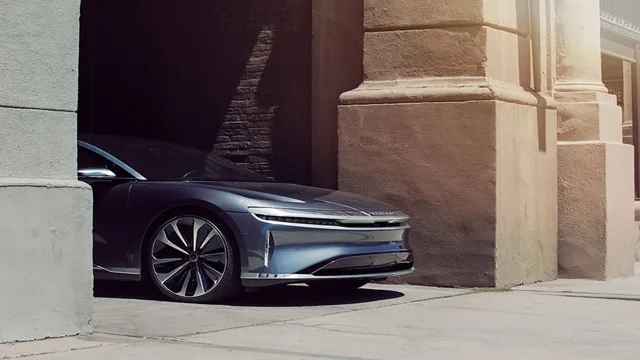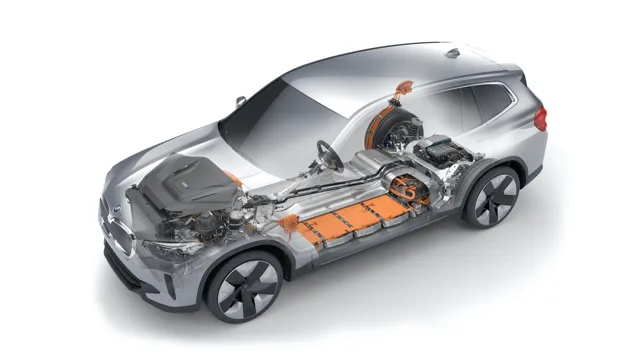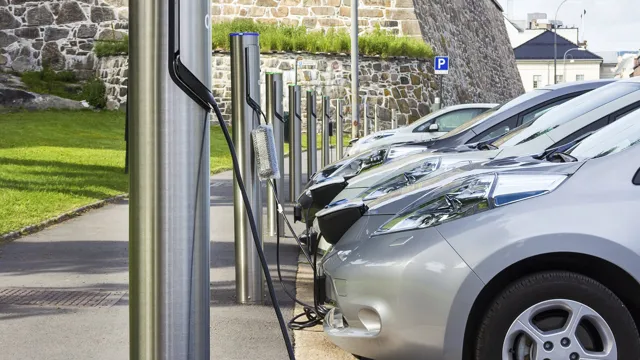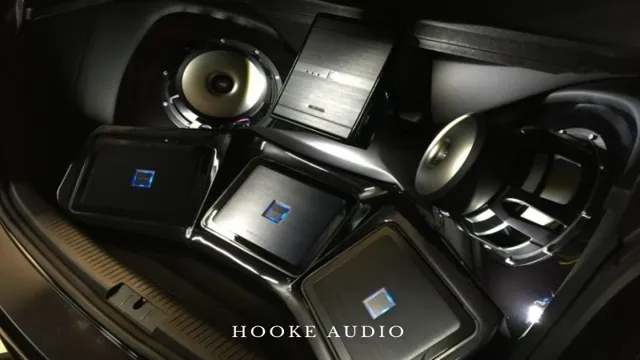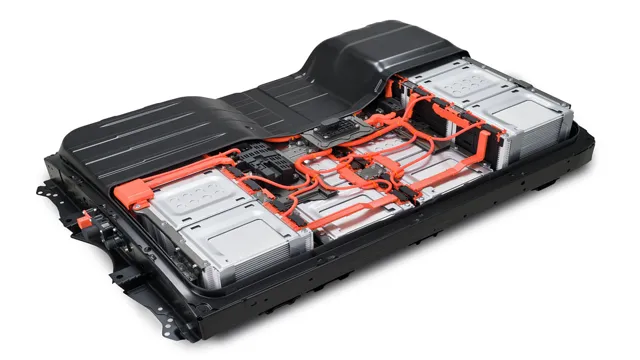Going Green: The Ecological Footprint of Electric Car Batteries Unveiled
Electric cars have gained immense popularity in recent times due to their eco-friendly nature. Running on electricity instead of gasoline, these vehicles help reduce carbon emissions and benefit the environment. But have you ever wondered about the ecological impact of their batteries? With countless electric cars on the road, the demand for batteries has increased, and their production entails several environmental consequences.
Though electric car batteries use fewer metals than traditional vehicle batteries, their manufacture is still a tedious process that requires large amounts of resources. Lithium, cobalt, and nickel are the primary components in these batteries, and their mining requires the destruction of entire ecosystems. Additionally, the production of these batteries generates considerable greenhouse gas emissions.
Moreover, the disposal of electric car batteries presents another challenge. Once they reach the end of their life span, these batteries could contaminate the environment due to the toxic chemicals they contain. If not disposed of correctly, they could cause severe harm to the ecosystem.
Nonetheless, advancements in technology show promise for reducing the ecological impact of electric car batteries. The development of recycling systems to extract and repurpose valuable metals from old batteries could reduce the demand for new ones, minimizing the damage to ecosystems caused by mining. In spite of the ecological impact, electric car batteries remain a feasible option in the world’s transition to a greener and more sustainable future.
Understanding their environmental impact and working on solutions is vital to minimize the damage to our planet and ensure that we continue to move towards a cleaner future.
What are Electric Car Batteries?
Electric car batteries are the heart of modern electric vehicles (EVs). Unlike traditional gasoline-powered cars that run on an internal combustion engine, EVs rely on an electric motor and battery pack. The environmental impact of electric car batteries is a question often asked by car buyers looking to shift to eco-friendly alternatives.
While EVs produce fewer emissions than their gasoline counterparts, the batteries they use can have harmful effects on the environment. The production and disposal of electric car batteries have the potential to contribute to air and water pollution, as well as to the depletion of natural resources. However, many automakers are now investing in sustainable battery manufacturing practices that utilize recycled materials and clean energy sources.
With growing demand for electric vehicles worldwide, it’s important for the industry to continue developing environmentally responsible battery solutions.
Composition and Materials Used
Electric car batteries are the power source that keeps the engine going in electric vehicles. These batteries are typically made up of several cells, each containing an anode, a cathode, and an electrolyte. The most commonly used materials for these components are lithium-ion and nickel-metal hydride.
Lithium-ion batteries are more popular because they are lighter and have a longer lifespan. Electric car batteries are designed to have a high energy density, which means they can store a lot of energy in a small space. This is essential for electric vehicles, as they require a lot of energy to power their motors.
The batteries are also designed to be durable, efficient, and safe. They have a complex control system that manages the charging and discharging of the battery to prevent overheating or overcharging. In summary, electric car batteries are a key component of electric vehicles that use advanced technology and high-quality materials to deliver reliable, safe, and efficient performance.

Life Cycle Analysis
Electric car batteries are a crucial component of electric vehicles that provide power for them to move. They use rechargeable lithium-ion batteries, which are environmentally friendly and have a longer lifespan than traditional lead-acid batteries. Life cycle analysis of electric vehicle batteries has shown that these batteries have a much lower impact on the environment than fossil fuel vehicles.
They produce less greenhouse gas emissions, reduce dependence on fossil fuels, and provide economic benefits through energy security and domestic job creation. Furthermore, electric vehicle batteries are highly recyclable, and many car manufacturers have adopted closed-loop recycling systems to recover valuable materials. This helps to reduce the reliance on mining raw materials for new batteries, promoting a circular economy and ultimately reducing the environmental impact of these vehicles.
Overall, electric car batteries are an essential piece of technology in the transition towards a more sustainable future.
Environmental Issues Caused by Electric Car Batteries
When electric cars first emerged on the market, they were touted as an eco-friendly solution to gas-guzzling vehicles. However, as we examine the ecological impact of electric car batteries, it’s clear that they are not without their own set of environmental issues. For one, the production of lithium-ion batteries requires the mining of rare metals, such as cobalt, nickel, and lithium.
These mining activities can cause significant damage to the environment, including deforestation, soil degradation, water pollution, and habitat destruction. Additionally, the disposal of electric car batteries at the end of their lifespans can pose a significant threat to the environment due to their toxicity. Recycling programs are being developed to address this issue, but they are not widespread yet.
As electric cars become more popular, it’s crucial that we also consider their ecological impact and work to mitigate any potential harm.
Mining and Depletion of Natural Resources
Mining and Depletion of Natural Resources Nowadays, electric cars are touted as a game-changer for our planet. They are regarded as eco-friendly and sustainable, but the production of electric car batteries has raised concerns about the environment. Mining for the essential materials required for batteries, such as lithium, nickel, and cobalt, causes massive environmental damage and depletion of natural resources.
Extraction of these minerals results in soil erosion, contamination of local water sources, and destruction of ecosystems. Furthermore, the production of these materials requires a significant amount of energy, which is mostly generated from non-renewable fossil fuels. This, in turn, increases CO2 emissions and contributes to global warming.
Therefore, while electric cars may have lower emissions than traditional vehicles, we must also consider the impact that battery-related mining and production has on the environment.
Carbon Footprint During Manufacturing
As we turn towards electric cars, one of the environmental issues that we need to keep in mind is the carbon footprint during manufacturing. While electric cars may seem like a greener option, the manufacturing process is not always as eco-friendly. One of the major culprits is the batteries used in electric cars.
These batteries require significant amounts of energy to produce and, as a result, have a higher carbon footprint. Despite this, it’s worth noting that electric car batteries have a significantly lower carbon footprint during their use than traditional gas cars. But to truly transition to a more sustainable future, it’s important to consider all aspects of manufacturing and energy usage.
By working towards more sustainable battery production and energy sources, we can help reduce the carbon footprint and create a greener transportation system.
Hazardous Waste and Disposal
Electric car batteries have become increasingly popular in recent years due to the need for environmentally friendly vehicles. However, the production and disposal of these batteries bring potential hazards to the environment. The materials used to make electric car batteries, such as lithium, cobalt, and nickel, are not only expensive to mine but also harmful to the environment.
Improper disposal of these materials can result in soil and water contamination, making it hard to sustain plant and animal life. Furthermore, electric car batteries cannot be recycled like normal household batteries, making their disposal even more problematic. Reducing the environmental impact from electric car batteries requires recycling and proper disposal procedures to minimize the potential harm to our environment.
Solutions and Mitigation Strategies
The ecological impact of electric car batteries has been a growing concern among environmentalists and researchers. Although electric vehicles are viewed as a cleaner alternative to traditional gas-powered cars, the reality is that the production and disposal of their batteries generate significant amounts of greenhouse gas emissions, toxic waste, and other environmental problems. However, researchers and manufacturers are continuously working on solutions and mitigation strategies to address these challenges.
For example, some companies are developing more efficient and sustainable battery production methods, while others are recycling and reusing materials from old batteries. Similarly, governments are incentivizing the use of renewable energy, promoting a circular economy, and enforcing stricter regulations to reduce the ecological impact of electric car batteries. While no solution is perfect, these efforts are essential to ensure that electric vehicles can thrive as a sustainable transportation option that benefits both the environment and human health.
Recycling and Reuse Initiatives
Recycling and Reuse Initiatives are essential solutions and mitigation strategies in addressing environmental problems. With the rampant use of single-use plastics and other non-biodegradable materials, the need for recycling and reuse has become increasingly crucial. Proper waste segregation and disposal, as well as the proper disposal of hazardous materials, can significantly reduce the amount of waste generated.
Encouraging households and communities to recycle and repurpose items can also help reduce the need for extracting new resources. Non-profit organizations that specialize in recycling and waste reduction have also emerged, further emphasizing the importance of these initiatives and strategies. These efforts are not only for the benefit of the environment but can also create employment opportunities and generate income.
The best thing about recycling and reuse initiatives is that it starts with the individual. By being mindful of our waste and actively participating in these initiatives, we can make a significant impact on the environment.
Alternative Battery Chemistries
Alternative Battery Chemistries As concerns surrounding lithium-ion batteries continue to grow, researchers are exploring alternative battery chemistries that offer better sustainability. One of these alternatives is the solid-state battery, which uses solid-state electrolytes instead of liquid electrolytes. Solid-state batteries offer a safer and more stable option, as they’re less likely to leak, catch fire, or explode.
They’re also more durable and efficient than their liquid counterparts. Another alternative is the lithium-sulfur battery, which uses sulfur instead of cobalt as its cathode material. While they boast a higher energy density, they’re not without their challenges, such as a shorter lifespan and issues with stability.
Nevertheless, researchers continue to work on mitigating these issues to make lithium-sulfur batteries a more viable option for sustainable power storage.
Conclusion and Future Prospects
As we look towards a greener future, electric cars have become a popular choice for those seeking a more sustainable mode of transportation. However, the ecological impact of electric car batteries cannot be ignored. While they offer a reduced carbon footprint on the road, the materials used in the production of these batteries have significant environmental consequences.
So, to put it simply, electric car batteries are like the vegan cheese of the auto industry – while they may be the better option for the environment, we mustn’t forget that they still have an impact. It’s important to continue seeking out ways to lessen this impact and find even more sustainable solutions, as we all work towards a cleaner and greener future.
FAQs
What are electric car batteries made of?
Electric car batteries are generally made of lithium-ion cells that contain materials like lithium, cobalt, and nickel.
How do electric car batteries impact the environment?
Electric car batteries can have a positive impact on the environment by reducing greenhouse gas emissions, but they can also have negative impacts due to the mining and refining of materials used in the batteries.
How long do electric car batteries last?
The lifespan of an electric car battery can vary based on factors like the type of battery, driving habits, and maintenance, but most electric car batteries last between 8 to 10 years.
How are used electric car batteries disposed of?
Electric car batteries can be recycled, which can help recover valuable materials and reduce waste. However, if they are not recycled, they can pose environmental and safety risks due to the materials they contain.

